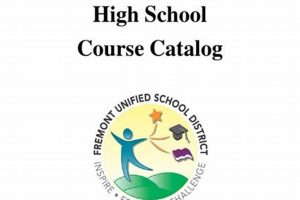Subjects suitable for informative speeches within a high school setting encompass a broad spectrum. These can range from academic concerns like effective study habits, time management techniques, and exploring various career paths, to social issues such as navigating peer pressure, promoting mental health awareness, and understanding the impact of social media. An example of a suitable topic might be the history and evolution of standardized testing or the importance of extracurricular activities in college applications.
Selecting relevant and engaging subjects empowers students to develop crucial research, organization, and public speaking skills. A well-crafted speech can inform and enlighten fellow students, fostering a deeper understanding of critical issues impacting their lives and the broader community. Historically, rhetoric and oratory have played a vital role in education, enabling individuals to articulate ideas, influence opinions, and participate actively in civic discourse. Cultivating these skills in the high school environment prepares students for future academic and professional success.
This article will explore a range of potential subject areas for informative speeches, offering insights into each topic and suggesting potential avenues for research and development. It will also provide guidance on structuring an effective speech, from outlining key arguments to crafting a compelling conclusion.
Tips for Selecting Speech Topics
Choosing an appropriate subject for an informative speech requires careful consideration of the audience, available resources, and the speaker’s own interests. These tips offer guidance for selecting a topic that will resonate with listeners and provide a valuable learning experience.
Tip 1: Consider Relevance. Topics should resonate with the audience’s experiences and current events. A speech about the college application process, for instance, would likely be more engaging for high school students than a discourse on retirement planning.
Tip 2: Explore Personal Interests. Genuine enthusiasm for a subject translates into a more engaging presentation. Speakers should consider their passions and areas of expertise when brainstorming potential topics.
Tip 3: Research Available Resources. Ensure sufficient information exists to support the chosen topic. Access to credible sources, data, and expert opinions will strengthen the presentation and enhance credibility.
Tip 4: Narrow the Focus. Broad topics can become unwieldy and difficult to cover within a limited timeframe. Narrowing the scope to a specific aspect of a broader subject allows for a more in-depth and impactful presentation. For example, instead of “Music,” consider “The Influence of Hip-Hop on Modern Music.”
Tip 5: Strive for Originality. While familiar subjects can be effective, exploring a unique angle or perspective can add intrigue and capture audience attention. Consider a fresh approach to a common theme.
Tip 6: Think about Visual Aids. Engaging visuals can enhance understanding and retention. Consider topics that lend themselves well to visual support, such as charts, graphs, or images.
Tip 7: Practice Effective Time Management. Choose a topic that can be adequately researched and presented within the allocated time. Overly ambitious topics can lead to rushed presentations and superficial coverage.
Selecting a well-suited topic is the foundation of a successful informative speech. By considering these guidelines, speakers can ensure their presentations are both informative and engaging, contributing meaningfully to the audience’s understanding.
By applying these strategies, speakers can develop presentations that effectively inform and engage their audience, contributing to a more enriching educational experience. The following section will offer practical advice on structuring and delivering these impactful speeches.
1. Academic Strategies
Academic strategies play a crucial role in a student’s success throughout high school and beyond. Understanding and implementing effective learning techniques can significantly impact academic performance, reduce stress, and prepare students for future educational pursuits. Exploring these strategies provides fertile ground for informative speeches, offering valuable insights to fellow students navigating the challenges of high school academics.
- Effective Study Habits
Effective study habits encompass a range of techniques designed to optimize learning. Examples include active recall, spaced repetition, and the creation of effective study environments. A speech on this topic could explore different learning styles, offer practical tips for improving concentration and memory retention, and discuss the importance of creating a balanced study schedule. This information empowers students to take control of their learning process and improve academic outcomes.
- Time Management Techniques
Effective time management is essential for balancing academic demands with extracurricular activities, social life, and personal well-being. Techniques such as prioritizing tasks, utilizing scheduling tools, and avoiding procrastination can significantly reduce stress and improve productivity. An informative speech on time management can provide practical strategies for students to organize their schedules, allocate time effectively, and achieve a healthy work-life balance.
- Test-Taking Strategies
Test anxiety and inadequate preparation can hinder academic performance. Effective test-taking strategies, including mindful test preparation, stress management techniques, and understanding different question formats, can improve test scores and reduce test-related anxiety. A speech focusing on this topic could offer practical advice on preparing for different types of exams, managing test anxiety, and developing effective test-taking approaches.
- Note-Taking Methods
Efficient note-taking is a critical skill for academic success. Different methods, such as the Cornell method, mind mapping, and sketchnoting, cater to various learning styles and information retention preferences. A speech exploring these methods could provide students with valuable tools for actively engaging with classroom material, organizing information effectively, and improving comprehension and recall.
By exploring these academic strategies in informative speeches, students can share valuable insights with their peers, fostering a culture of academic excellence and empowering one another to achieve their full potential. These topics offer practical advice, actionable strategies, and relevant information that can directly impact student success throughout high school and beyond. Furthermore, researching and presenting on these topics strengthens the speaker’s understanding of these crucial skills, reinforcing their importance and promoting lifelong learning.
2. Extracurricular Activities
Extracurricular activities offer rich subject matter for informative speeches within a high school context. These activities provide opportunities for skill development, personal growth, and community engagement, making them relevant and engaging topics for student audiences. Exploring the benefits, challenges, and diverse range of extracurricular options available can provide valuable insights for high school students.
Participation in extracurricular activities fosters essential skills applicable beyond the classroom. Team sports cultivate collaboration and leadership. Debate clubs hone critical thinking and public speaking skills. Volunteer organizations promote empathy and civic responsibility. Analyzing the specific skills developed through different activities allows students to make informed choices about how to best utilize their time and talents. For example, a speech could focus on the correlation between participation in student government and the development of leadership qualities, citing examples of successful student leaders who leveraged their extracurricular experiences for future career success.
Furthermore, exploring the challenges associated with balancing extracurricular commitments with academic responsibilities provides a practical dimension to an informative speech. Time management, prioritization, and stress management become crucial for students juggling multiple commitments. Addressing these challenges offers valuable advice for maintaining a healthy balance and maximizing the benefits of extracurricular involvement. This practical approach resonates with student audiences facing similar pressures and seeking effective strategies for navigating their busy schedules. Examining the potential impact of overcommitment on academic performance and mental well-being adds depth and relevance to the discussion.
Ultimately, exploring extracurricular activities as a topic for informative speeches provides valuable opportunities for students to learn about the diverse options available, understand the associated benefits and challenges, and make informed decisions about their own involvement. Such speeches can empower students to make the most of their high school experience and prepare them for future success in college, careers, and life beyond academics. By thoughtfully examining the impact of these activities, students gain a deeper appreciation for their role in holistic development and personal growth.
3. College Preparation
College preparation forms a significant aspect of the high school experience, impacting academic choices, extracurricular involvement, and personal development. Informative speeches addressing this multifaceted process can provide valuable guidance and insights for students navigating this crucial period. Exploring various facets of college preparation offers relevant and engaging topics for speeches, benefiting both the speaker and the audience.
- Standardized Testing
Standardized tests, such as the SAT and ACT, play a significant role in college admissions. Understanding the structure, content, and scoring of these exams is crucial for effective preparation. Informative speeches can demystify the testing process, offering practical advice on test-taking strategies, study resources, and score interpretation. Examining the historical context and evolution of standardized testing can provide a broader perspective on their role in education.
- Application Process
Navigating the college application process can be complex and daunting. Informative speeches can provide clarity by outlining the steps involved, from researching colleges and compiling transcripts to writing compelling essays and securing letters of recommendation. Sharing practical tips for organizing application materials, meeting deadlines, and understanding financial aid options can empower students to approach the process with confidence.
- Choosing a Major
Selecting a college major requires careful consideration of personal interests, career aspirations, and academic strengths. Informative speeches can explore various academic disciplines, highlighting potential career paths and providing insights into the curriculum and coursework involved in different majors. Examining the job market outlook for various fields can assist students in making informed decisions about their future academic pursuits.
- Financial Aid and Scholarships
The cost of college education presents a significant concern for many students. Informative speeches can address this concern by explaining the different types of financial aid available, including grants, loans, and scholarships. Providing practical advice on searching for scholarships, completing the FAFSA, and understanding loan repayment options can empower students to navigate the financial aspects of higher education.
By addressing these key aspects of college preparation, informative speeches can empower students to approach this critical transition with confidence and preparedness. These topics offer ample opportunities for research, analysis, and practical advice, contributing valuable insights for students navigating the complexities of college admissions and planning for their future academic and professional endeavors.
4. Mental Health Awareness
Mental health awareness constitutes a critical topic for informative speeches within the high school environment. Adolescence presents unique challenges to mental well-being, including academic pressure, social dynamics, and identity formation. Openly discussing mental health fosters a supportive environment, reduces stigma, and equips students with coping mechanisms and resources. Ignoring adolescent mental health can have detrimental consequences, potentially leading to academic decline, social isolation, and increased risk of developing mental health disorders in adulthood. Educational initiatives promoting mental health awareness demonstrate positive impacts on student well-being, academic performance, and help-seeking behavior. For example, schools implementing mental health awareness programs often witness a decrease in disciplinary incidents and an increase in student engagement.
Incorporating mental health awareness into informative speeches provides opportunities to educate peers about common mental health challenges faced by adolescents, such as anxiety, depression, and stress. Speeches can explore effective coping strategies, including mindfulness techniques, stress management exercises, and healthy lifestyle choices. Furthermore, highlighting available resources, such as school counselors, support groups, and online platforms, empowers students to seek help when needed. Practical examples of how to support friends struggling with mental health challenges further enhance the impact of these speeches. For instance, a speech could discuss the importance of active listening, empathy, and encouraging professional help when appropriate. Discussions about destigmatizing mental health conversations contribute to creating a more supportive and understanding school community.
Promoting mental health awareness through informative speeches contributes significantly to student well-being and academic success. Addressing the challenges and misconceptions surrounding mental health creates a more inclusive and supportive school environment. Equipping students with knowledge, resources, and coping strategies fosters resilience and empowers them to prioritize their mental well-being. This proactive approach to mental health education benefits not only individual students but also the broader school community, promoting a culture of understanding and support.
5. Social Media Impact
Social media’s pervasive influence significantly impacts the lives of high school students, presenting both opportunities and challenges relevant to informative speeches. Exploring its multifaceted impact provides valuable insights into contemporary adolescent experiences, offering compelling topics for discussion and analysis.
- Cyberbullying and Online Harassment
Cyberbullying, a form of harassment using electronic communication, presents a significant threat to adolescent well-being. Informative speeches can explore the prevalence, impact, and forms of cyberbullying, highlighting real-life examples and legal ramifications. Discussions can focus on prevention strategies, intervention methods, and the role of bystanders in mitigating online harassment. Addressing this topic empowers students to recognize, report, and combat cyberbullying, fostering a safer online environment.
- Mental Health and Self-Esteem
Social media usage correlates with mental health outcomes, particularly among adolescents. Informative speeches can explore the potential impacts of social media on self-esteem, body image, and anxiety levels. Discussions can address the curated nature of online profiles, the pressure to conform to social media ideals, and the potential for social comparison and feelings of inadequacy. Analyzing research findings and real-life experiences provides valuable insights into maintaining a healthy relationship with social media and prioritizing mental well-being.
- Privacy and Digital Footprint
The concept of a digital footprint, the trail of data individuals leave online, carries significant implications for high school students. Informative speeches can educate students about the permanence of online information, the potential consequences of sharing sensitive data, and the importance of protecting online privacy. Discussions can explore privacy settings, responsible online behavior, and the impact of digital footprints on college applications and future employment opportunities.
- Spread of Misinformation and Media Literacy
The rapid dissemination of information through social media necessitates critical evaluation and media literacy skills. Informative speeches can address the prevalence of misinformation, propaganda, and biased content online. Discussions can focus on strategies for verifying information, identifying credible sources, and understanding the ethical implications of sharing unverified content. Promoting media literacy empowers students to navigate the complex digital landscape and make informed decisions based on accurate information.
By exploring these multifaceted impacts, informative speeches on social media provide valuable insights relevant to the high school experience. These topics offer opportunities for critical analysis, ethical reflection, and practical application, empowering students to navigate the digital world responsibly and make informed choices about their online engagement. Understanding the complexities of social media prepares students for the challenges and opportunities of the digital age, fostering a more responsible and informed online community.
6. Career Exploration
Career exploration offers fertile ground for informative speeches within a high school setting. Understanding the breadth of career options and the pathways to pursue them equips students to make informed decisions about their future academic and professional trajectories. Exploring various career fields, required skills, and educational prerequisites provides valuable insights for students preparing for life after high school. Such exploration allows students to align their interests and aptitudes with potential career paths, increasing the likelihood of future job satisfaction and success. Furthermore, understanding the evolving job market and emerging industries prepares students for the dynamic nature of the modern workplace.
- Emerging Industries
Emerging industries, such as renewable energy, biotechnology, and artificial intelligence, offer promising career opportunities for future generations. Informative speeches can explore these burgeoning fields, highlighting required skills, educational pathways, and potential career trajectories. Analyzing growth projections and market trends provides valuable insights for students considering careers in these innovative sectors. For example, a speech could explore the growing demand for data scientists, outlining the necessary educational background and skillset required for this in-demand profession.
- Traditional Career Paths
While emerging industries offer exciting prospects, traditional career paths in fields like medicine, law, and education remain relevant and impactful. Informative speeches can explore these established professions, discussing the required education, training, and career progression within these fields. Examining the evolving landscape of these professions, such as the increasing role of technology in healthcare or the changing legal landscape, provides a contemporary perspective. For instance, a speech could explore the various specialties within the medical field, outlining the different educational pathways and residency requirements for each.
- Vocational Training and Apprenticeships
Vocational training and apprenticeships offer alternative pathways to career success, providing hands-on experience and specialized skills. Informative speeches can explore the benefits of these programs, highlighting the diverse range of trades and vocations available. Comparing and contrasting vocational training with traditional college education allows students to consider alternative routes aligned with their interests and aptitudes. For example, a speech could explore the career opportunities available through apprenticeships in the skilled trades, such as plumbing, electrical work, or carpentry.
- Job Market Trends and Future of Work
The job market is constantly evolving, influenced by technological advancements, globalization, and changing economic conditions. Informative speeches can explore current job market trends, highlighting in-demand skills and emerging career fields. Discussing the impact of automation and artificial intelligence on future employment prospects prepares students for the dynamic nature of the modern workplace. Analyzing labor statistics and industry projections provides valuable insights for students planning their future careers. For example, a speech could explore the growing gig economy and the implications for traditional employment models.
By exploring these facets of career exploration, informative speeches provide high school students with valuable tools and insights for navigating their future career paths. Understanding the diverse range of career options, required skills, and educational pathways empowers students to make informed decisions aligned with their individual interests and aspirations. This preparation contributes not only to future career success but also to a more fulfilling and purposeful life beyond high school. Furthermore, researching and presenting on these topics encourages students to engage with real-world issues, develop critical thinking skills, and become more informed about the dynamic landscape of the modern workplace.
7. Time Management Skills
Effective time management constitutes a crucial skill for high school students, impacting academic performance, extracurricular involvement, and overall well-being. Its relevance extends to informative speech preparation and delivery, making it a suitable and impactful topic for student presentations. Exploring various facets of time management provides valuable insights for navigating the demands of high school and beyond, offering practical strategies for improved productivity and reduced stress.
- Prioritization Techniques
Prioritization involves identifying and ranking tasks based on importance and urgency. Methods like the Eisenhower Matrix, which categorizes tasks into four quadrants based on urgency and importance, provide frameworks for effective prioritization. Students prioritizing assignments, extracurricular activities, and social commitments experience improved organization and reduced stress. This skill translates directly to informative speech preparation, allowing students to allocate appropriate time for research, outlining, practice, and revision. For example, a student might prioritize researching key arguments over designing visual aids in the initial stages of speech preparation.
- Scheduling and Organization Tools
Utilizing scheduling tools, such as planners, calendars, and digital applications, enhances organizational skills and facilitates effective time management. These tools provide visual representations of deadlines, appointments, and commitments, enabling students to allocate time effectively and avoid scheduling conflicts. Applying these tools to informative speech preparation allows students to track research progress, schedule practice sessions, and manage deadlines for outlines and drafts. For instance, a student might use a digital calendar to set reminders for research deadlines and practice sessions, ensuring timely completion of each stage of speech preparation.
- Procrastination and Time Wasting
Procrastination, the act of delaying tasks, often stems from poor time management skills and can negatively impact academic performance and overall well-being. Understanding the underlying causes of procrastination, such as fear of failure or perfectionism, allows students to develop strategies for overcoming this common challenge. Informative speeches can address procrastination by exploring its psychological roots, offering practical tips for overcoming it, and highlighting the benefits of proactive time management. For example, a speech could discuss the Pomodoro Technique, a time management method that breaks work into intervals separated by short breaks, as a strategy for combating procrastination.
- Balancing Academic, Extracurricular, and Personal Life
Balancing the demands of academics, extracurricular activities, and personal life requires effective time management and prioritization. Students must allocate time for studying, participating in extracurriculars, maintaining social connections, and pursuing personal interests. Informative speeches can explore strategies for achieving a healthy work-life balance, emphasizing the importance of self-care, stress management techniques, and effective scheduling. For instance, a speech could discuss the benefits of incorporating mindfulness practices and regular exercise into a weekly schedule to improve focus and reduce stress.
By exploring these facets of time management, students gain valuable insights applicable to various aspects of their high school experience, including informative speech preparation and delivery. These skills contribute not only to academic success but also to improved organization, reduced stress, and enhanced overall well-being. Mastering time management empowers students to effectively navigate the demands of high school and prepares them for the challenges and opportunities of future academic and professional pursuits. Furthermore, discussing these skills in informative speeches allows students to share practical strategies with their peers, fostering a culture of productivity and promoting a balanced approach to academic and personal life.
Frequently Asked Questions
This section addresses common inquiries regarding suitable topics for informative speeches within a high school context. Clarity on these points assists in selecting relevant and engaging subjects for effective presentations.
Question 1: How does one select an appropriate topic for an informative speech?
Topic selection involves considering audience interests, available resources, and the speaker’s expertise. A relevant topic resonates with the audience, while ample resources ensure a well-supported presentation. The speaker’s own knowledge or passion for a subject enhances engagement and credibility.
Question 2: What distinguishes an informative speech from a persuasive speech?
An informative speech aims to educate the audience about a specific topic, presenting factual information and objective analysis. A persuasive speech, conversely, seeks to influence the audience’s beliefs or actions, advocating for a particular viewpoint. While informative speeches may indirectly influence opinions through the presentation of facts, their primary goal remains educational.
Question 3: How can one ensure the accuracy and credibility of information presented in a speech?
Accuracy and credibility depend on utilizing reputable sources. Academic journals, government publications, and established news organizations generally offer reliable information. Cross-referencing information from multiple sources enhances reliability. Proper citation practices attribute information to its original source, further bolstering credibility.
Question 4: What strategies enhance audience engagement during an informative speech?
Engaging presentations incorporate visual aids, such as charts, graphs, and images, to enhance understanding and retention. Varied vocal tone and pacing maintain audience interest. Incorporating real-life examples and anecdotes connects abstract concepts to tangible experiences, increasing relevance and relatability.
Question 5: How can one manage anxiety or stage fright when delivering an informative speech?
Thorough preparation and practice build confidence and reduce anxiety. Practicing in front of a mirror or a small audience simulates the actual speaking experience. Deep breathing exercises and mindfulness techniques can calm nerves before presenting. Visualizing a successful presentation reinforces positive self-perception.
Question 6: How can an informative speech contribute to academic and personal growth?
Researching and presenting informative speeches develops critical thinking, research, and communication skills. Organizing thoughts logically and expressing ideas clearly enhances communication proficiency. The process also fosters deeper understanding of the chosen topic, contributing to intellectual growth. These skills benefit students academically and prepare them for future professional endeavors.
Careful consideration of these questions facilitates effective topic selection and preparation, leading to informative and engaging speeches that benefit both the speaker and the audience.
The subsequent section will offer concluding remarks on the significance of informative speaking in a high school context.
Conclusion
Exploration of suitable informative speech topics within a high school setting reveals the breadth and depth of relevant subject matter. Academic strategies, extracurricular activities, college preparation, mental health awareness, social media impact, career exploration, and time management skills offer fertile ground for insightful and engaging presentations. Careful consideration of audience interests, available resources, and the speaker’s expertise ensures topic relevance and impactful delivery. Effective informative speeches empower students to share knowledge, develop critical thinking skills, and contribute meaningfully to the educational environment.
Cultivating effective communication skills through informative speaking equips students for future academic and professional success. The ability to articulate ideas clearly, support arguments with evidence, and engage audiences effectively proves invaluable in diverse contexts. High school provides a crucial training ground for honing these skills, preparing students for the challenges and opportunities of higher education and the professional world. The exploration and presentation of informative speeches contribute significantly to holistic student development, fostering intellectual curiosity, critical thinking, and effective communicationessential skills for lifelong learning and success.







